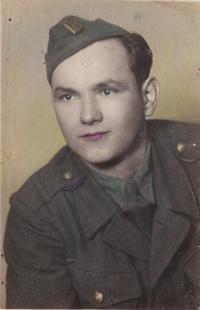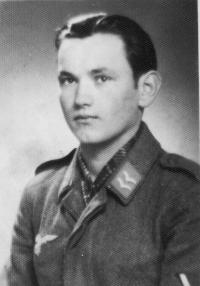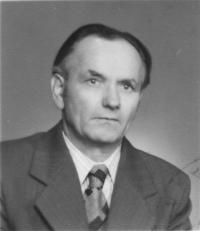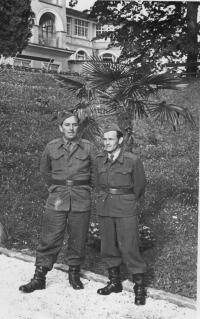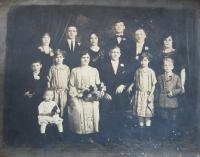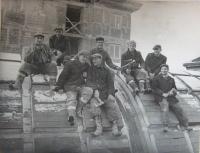In the military I swore to Hitler, Beneš, to the Queen of England, to Gottwald and then also to Zápotocký.

Download image
Mr. Bedřich Hubáček was born in 1923 in Bělá village in Hlučín region. This German-Polish region has been attached to Czechoslovakia after the formation of the Republic. His father František came from Uherské Hradiště town and he got to Hlučín region along with his garrison, which was supposed to occupy this territory in 1920. In the Bělá village he found himself his partner for life and stayed there for good. Because his father wasn´t originally from Hlučín region, the family had to face severe problems with some fanatical Germans during the Munich agreement period. After the occupation of the border region they had to escape to the inland, but as soon as the situation calmed down they were able to come back. Hlučín region was connected directly to the Third Reich and all of the local men had to enlist in the Wehrmacht. Bedřich Hubáček was called in April 1942. After the training in Birkenthal he was assigned to the 1st company of the Luftnachrichten-Regiment 22 and as a driver he was sent to Smolensk front. In August 1943, when repairing the telephone connection, he found himself in Katyn forest where he witnessed the exhumation of the dead Polish prisoners. When his unit arrived to Tivoli town near Minsk he was sent to collect a new car. On his way back he was caught by the field police and was sent with another foreign unit to Orsha town to help transport the wounded ones. It was during the Bagration operation and there was chaos everywhere. Bedřich Hubáček took advantage of the situation and soon he escaped back to his unit. Unfortunately the troops already withdrew toward Warsaw and he was forced to cross the territory which was surrounded by Soviet troops. When he got to Poland he was transferred to Goldap town where his unit was pulling down the headquarters and the airport of Hermann Göring. Shortly after that his unit proceeded further to Lodz town and thenwas reassigned to the West front. Bedřich Hubáček was transferred to the gunners and was deployed to Neukirchen town, where he was taken into captivity. In fall of 1945 while in Compiegne prisoners camp, he enlisted in the Czechoslovak army and was sent to Great Britain, where he worked for the UNNRA organization. After returning home he worked as a carpenter until 1948, when he was drafted into the army again, where - as politically unreliable - served eight months by the technical company in OKD Kladno coal mines. Presently he lives in Hať village.
